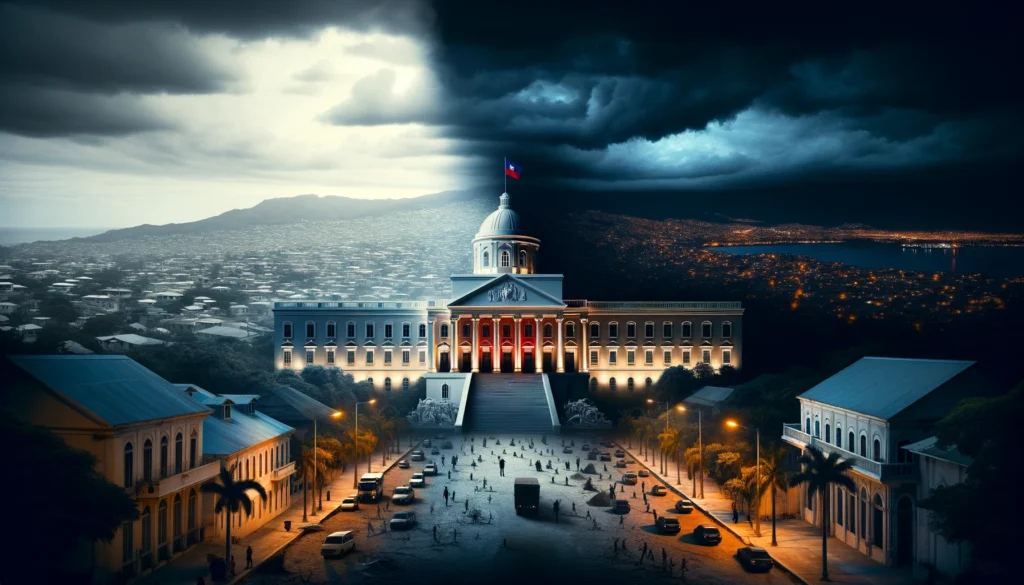
UN and Kenya Lead Mission to Restore Peace in Crisis-Hit Haiti: A Beacon of Global Solidarity
By Darius Spearman (africanelements)
Support African Elements at patreon.com/africanelements and hear recent news in a single playlist, plus get early access to ad-free video content.
Introduction to Haiti’s Crisis and Global Action
Haiti confronts a severe crisis with widespread gang violence and political chaos. Recently, the United Nations Security Council endorsed a Kenyan-led mission to restore stability. This move signifies a global commitment to peacekeeping and humanitarian aid. Moreover, the crisis in Haiti, steeped in historical political turmoil, demands urgent international intervention.
UN Security Council Approves Kenyan-Led Mission
Recently, the United Nations Security Council has approved a Kenyan-led international policing mission to Haiti. This mission aims to address the rampant gang violence and insecurity plaguing the nation. Consequently, the UN’s decision underscores the severity of the crisis and the need for international intervention to restore order (Georgetown Journal of International Affairs).
Kenya’s commitment to lead the security force in Haiti reflects a proactive foreign policy under President William Ruto. The mission aligns with Kenya’s ambition to distinguish itself as a leader in regional and international politics. Despite domestic challenges and mixed public support, Kenya is preparing to deploy officers to Haiti, signaling a new chapter in Nairobi’s foreign policy (Atlantic Council).
Gang Dominance and Security Collapse
Recently, criminal gangs have significantly overpowered Haiti’s security forces. They launched attacks on prisons and the airport in Port-au-Prince. Consequently, businesses and schools closed, displacing about 15,000 people. The United Nations has called the situation “beyond untenable.” It urges the deployment of a multinational security force (CBS News).
Moreover, Prime Minister Ariel Henry faces a severe challenge to his authority. Gang leader Jimmy “Barbecue” Cherizier announced a coalition of gangs. Their goal is to force Henry’s resignation. In response, Finance Minister Patrick Boivert declared a state of emergency. He also imposed an evening curfew. Cherizier warns of potential civil war and genocide if international support for Henry continues (CBS News).
Rising Insecurity
Additionally, armed bandits kidnapped three nuns from a Catholic orphanage in Port-au-Prince. This incident highlights the capital’s rising insecurity. Over 5,000 inmates are now free after attacks on two prisons. Several police units have also been attacked. The criminal coalition “Viv ansanm” demands Henry’s resignation (Vatican News).
Crisis Background
Haiti’s crisis traces back to government corruption and a history of violent unrest. The situation worsened after the assassination of President Jovenel Moïse in 2021. Henry assumed power but failed to cement his authority. The country has been unable to hold elections for years. It lacks any elected officials (CBS News).
Haiti’s Deep-Rooted Political Turmoil
Furthermore, Haiti’s political history is marked by cycles of violence and foreign intervention. Since its independence from France and becoming the first Black-led republic, Haiti has faced dynastic dictatorships, U.S. occupation, and repeated instability. Additionally, the assassination of President Jovenel Moïse in 2021 further destabilized the country, leading to the current crisis (Al Jazeera).
Haiti’s troubled path to development has been hindered by foreign interventions, political instability, and natural disasters. The country’s economic situation remains dire, with a significant portion of the population living below the poverty line. Also, the complex history of foreign debt and interventions, including a nearly two-decade-long U.S. occupation, has contributed to the current humanitarian and political crisis (Council on Foreign Relations).
Urgent Need for Multinational Support
The international community, including the United States, has expressed concern. The Biden administration urged Henry to advance political processes. Other countries in the region have secured their borders against potential refugee flows. Ultimately, the effectiveness of these responses remains uncertain as Haiti grapples with its crisis (The Global Americans).
Finally, the UN Secretary-General has called for urgent action to end the rampant insecurity in Haiti. A deal between Kenya and Haiti expects to see a contingent of 1,000 Kenyan officers leading the support mission. However, the mission faces constitutional challenges in Kenya. Thus, the international community, including the UN, is advocating for financial support to ensure the success of this critical intervention (United Nations News).
Conclusion: Hope for Haiti’s Stability
The UN’s initiative and Kenya’s leadership offer hope for Haiti’s future. This international response to Haiti’s plea for help underscores global solidarity in crisis management. Furthermore, the success of these efforts will depend on their swift implementation. As Haiti faces a critical juncture, the world watches, ready to support a nation in need.
About the author:
Darius Spearman is a professor of Black Studies at San Diego City College, where he has been pursuing his love of teaching since 2007. He is the author of several books, including Between The Color Lines: A History of African Americans on the California Frontier Through 1890. You can visit Darius online at africanelements.org.
